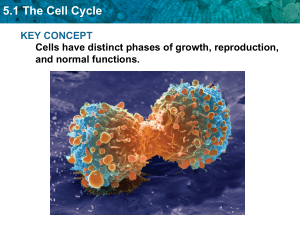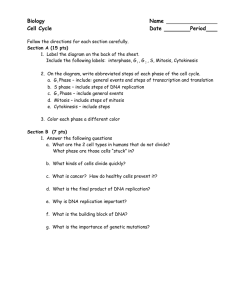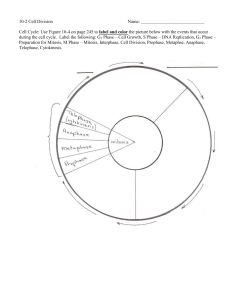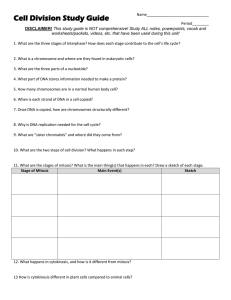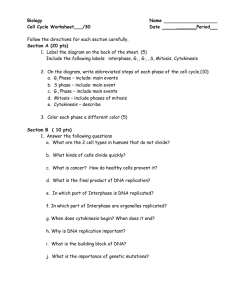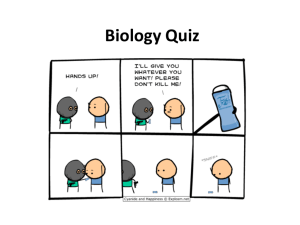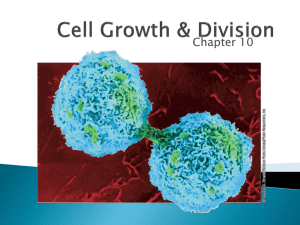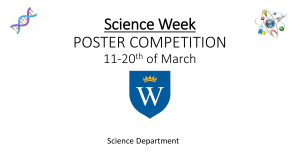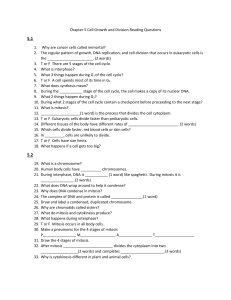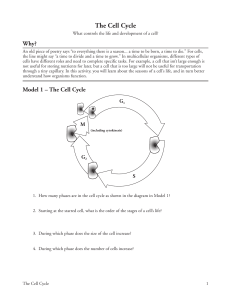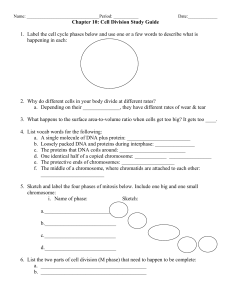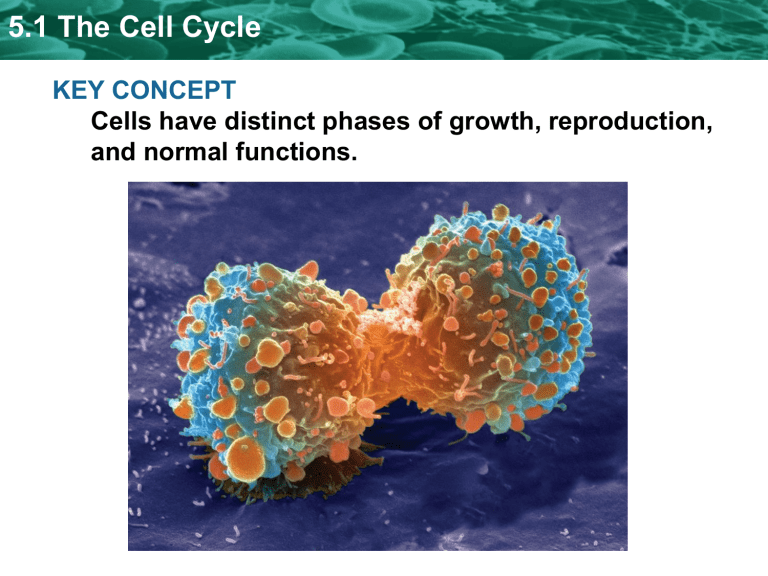
5.1 The Cell Cycle KEY CONCEPT Cells have distinct phases of growth, reproduction, and normal functions. 5.1 The Cell Cycle The cell cycle has four main stages. • The cell cycle is a regular pattern of growth, DNA replication, and cell division. 5.1 The Cell Cycle • The main stages of the cell cycle are gap 1, synthesis, gap 2, and mitosis. – Gap 1 (G1): cell growth and normal functions – DNA synthesis (S): copies DNA – Gap 2 (G2): additional growth – Mitosis (M): includes division of the cell nucleus (mitosis) and division of the cell cytoplasm (cytokinesis) • Mitosis occurs only if the cell is large enough and the DNA undamaged. 5.1 The Cell Cycle Cells divide at different rates. • The rate of cell division varies with the need for those types of cells. • Some cells are unlikely to divide (G0). 5.1 The Cell Cycle Cell size is limited. • Volume increases faster than surface area. 5.1 The Cell Cycle • Surface area must allow for adequate exchange of materials. – Cell growth is coordinated with division. – Cells that must be large have unique shapes.
